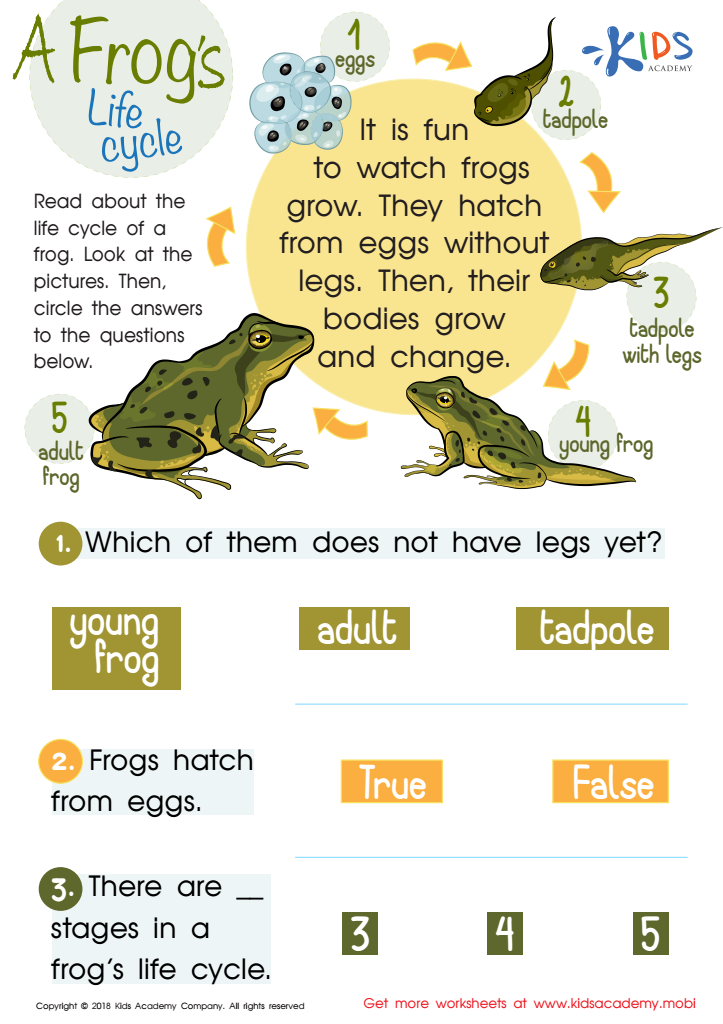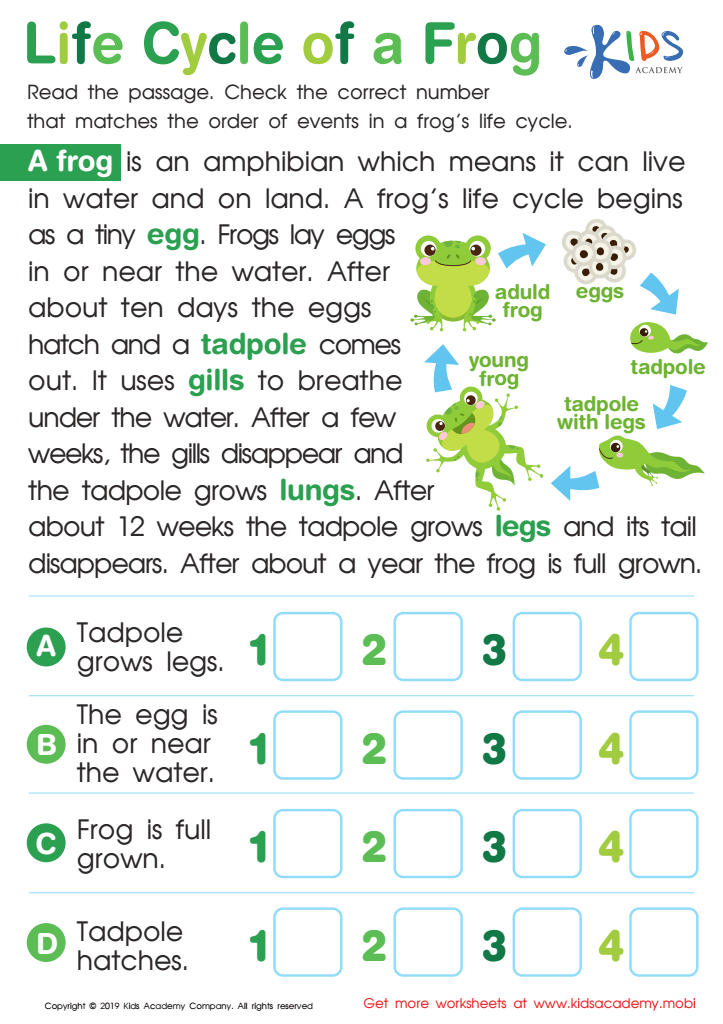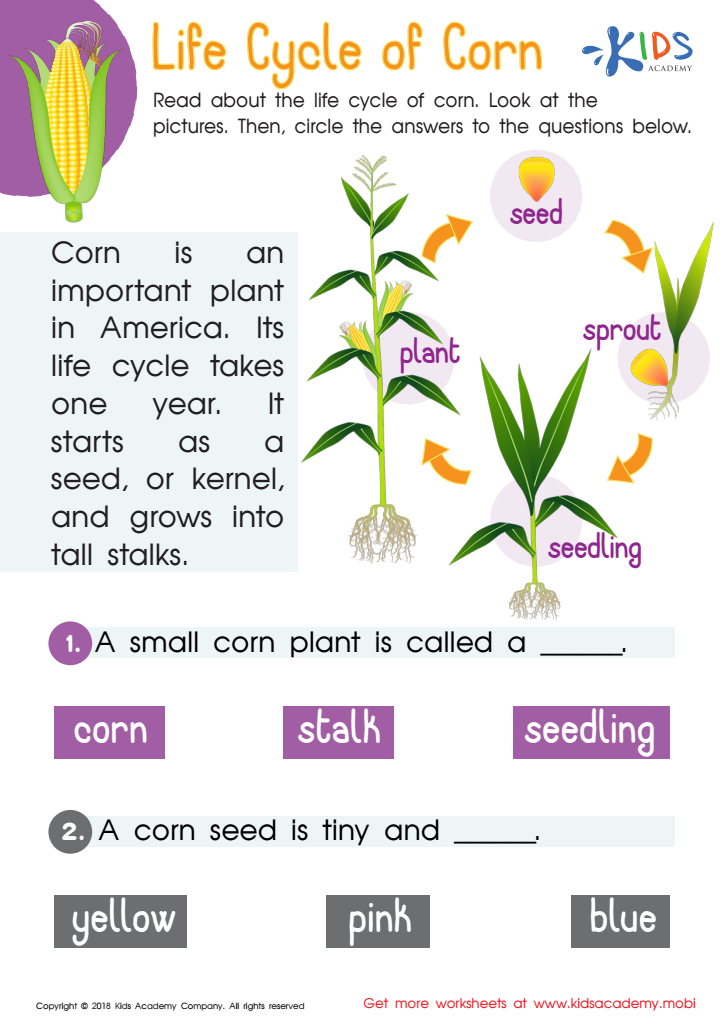Understanding life cycles Reading Non-Fiction Worksheets for Ages 8-9
3 filtered results
-
From - To
Discover the fascinating world of life cycles with our Reading Non-Fiction Worksheets, tailored for ages 8-9. These engaging and educational worksheets from Kids Academy offer young readers the opportunity to explore and understand the stages of development in various living organisms. Through age-appropriate text and vivid illustrations, children will enhance their reading comprehension and critical thinking skills. Perfect for both classroom and home use, these worksheets not only educate but also inspire curiosity about the natural world. Help your child discover the wonders of life cycles and strengthen their learning foundation with these expertly crafted resources.


A Frog’s Life Cycle Worksheet


Life Cycle of a Frog Worksheet


Life Cycle of Corn Worksheet
Understanding life cycles is a foundational concept that helps children grasp the biological processes that govern living organisms. For parents and teachers, introducing children to the life cycles of plants, animals, and even humans through non-fiction reading is crucial for several reasons.
Firstly, it fosters a sense of curiosity and wonder about the natural world. Children begin to see the interconnectedness of life and develop respect and empathy for living organisms. Knowing that plants and animals go through stages such as birth, growth, reproduction, and death teaches them about responsibility, nurturing, and conservation.
Secondly, non-fiction reading builds essential academic skills. These texts expose children to scientific vocabulary and concepts, enhancing their comprehension and critical thinking abilities. Reading non-fiction also supports literacy development by building background knowledge and improving information-processing skills, which are crucial for overall academic success.
Moreover, understanding life cycles aligns with curricular goals in elementary science and promotes interdisciplinary learning. When children read about life cycles, they often integrate subjects like math (counting stages), writing (describing processes), and art (drawing life stages).
Ultimately, engaging with non-fiction content about life cycles prepares children for more advanced scientific learning, while also fostering a lifelong appreciation for reading and the environment around them.
 Assign to My Students
Assign to My Students
















